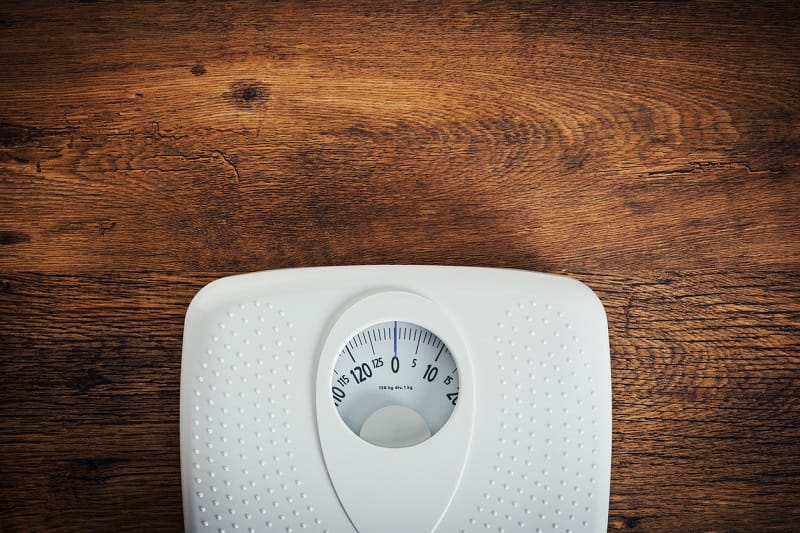So, you are looking to lose weight and are unsure of where to start? Overweight and obesity are the most common nutritional disorders globally. Yes – even more prevalent than undernutrition across the globe. This means that more people than ever are actively trying to lose weight.
Unfortunately, this means that weight loss has become a multibillion-dollar industry. Once you start searching “how to lose weight” you will come across countless diets, diet pills, diet shakes … the list really is endless. Fad diets are rampant, from cabbage soup diets to the keto diet, and the information is conflicting and confusing.
What is a fad diet?
A fad diet is a diet plan which eliminates 1 or more food groups. They tend to have strict rules and they promise fast weight loss.
What not to love about fast weight loss?
It is tempting. If you go on a strict diet for a few weeks and lose a huge amount of weight you might think, woohoo; mission accomplished!
Well, not really. Something I always tell my clients is that if a diet really worked, then everyone would be doing it and we would not have an obesity epidemic. Fad diets can have catastrophic effects on overall health and, in many cases, can lead to greater weight gain long-term.
So, the next time that you are tempted to start a fad diet just remember that 90+% of these diets fail. You wouldn’t invest your money in a business with a failure risk this high so why take this illogical approach with your most important asset: your health?
What happens when you go on a strict diet?
Basically, no matter what diet you are doing, these diets all work on the same principle; reduce your calorie or energy intake.
In order to function, your body needs energy. Exactly like how a car needs fuel to function, energy is required to make your brain function, your lungs to breathe, your heart to pump blood, your digestive system to function, to name a few of the thousands of bodily functions that we don’t even realise are happening.
If your body doesn’t get the energy that it needs for these processes from food or drink, then it will take energy from your fat stores. This is how “weight loss” or “fat loss” happens.
For most people, a loss of 1-2 pounds (0.5-1kg) of fat per week is a huge achievement, as it means that you have managed to reduce your calorie intake by 3,500-7000 calories per week.
Achieving this deficit through healthy food choices and exercise is recommended so that your body gets the nutrients that it needs in order to stay healthy. Also, when focusing on healthy eating and exercise, you will adopt a healthier relationship with food and change your habits that lead to weight loss in the first place.
So, where does the problem lie?
Unfortunately losing weight at a rate of 1-2lbs per week sounds slow, especially when there are other diets promising 10+ pounds of weight loss in 1 week. Generally when someone has decided that they want to lose weight, they are usually in a frame of mind where they are not happy with their bodies and the idea of chipping away at the fat slowly is not too appealing, and so the fad diet wins over the healthy sustainable approach time and time again.
5 reasons that fast weight loss is not the answer
Rapid weight loss can result in muscle loss.
If you fail to give your body enough protein via food or drinks, your body will be forced to break down your muscle mass in order to obtain the amino acids (building blocks) that it needs to create proteins. This is not good news, as muscle is what gives us shape and keeps us strong throughout our lives. When trying to reduce weight, losing muscle should not be the focus as this is beneficial weight. Instead, focus on losing body fat, which is essentially stored energy.
2. Did you lose fat or stored sugar?
When you cut your calories to an extreme low, or when you cut carbohydrates from your diet, your body will first use up the sugar in your blood, and then it will turn to your stored sugar in your muscles and liver cells (called glycogen) for a source of energy.
When you step on the scales, you might think that you have lost pounds or kilos of fat when, in fact, you might have just used up your body’s energy supplies. The problem with this is that as soon as you begin to consume bread, pasta, rice, fruit, doughnuts or pizza again for example, your body will replace your blood sugar or glycogen stores, and this can wrongly be interpreted as weight gain and demotivate many people.
3. Did you dehydrate your body?
When you lose glycogen from your liver and muscle cells, you also lose attached water molecules. This essentially dehydrates the body. We know that our bodies are 60-70% water and even mild dehydration can affect how we function, along with the negative effects on mood and energy levels.
Losing water weight is not a healthy goal when it comes to improving your body composition. Again, the focus should be on fat loss and aiming for your clothes to fit looser.
4. Dieting can lead to greater weight gain.
Research shows that once you start dieting, you can get trapped in the diet cycle. This means that you lose touch with eating for health and can end up in a cycle of bingeing and restricting, which can eventually lead to greater weight gain long-term. Often people end up at a heavier weight than they originally started at years prior.
Dieting can lead you to believe that there are good and bad foods for weight loss and that extreme action is needed in order to be healthy. This could not be further from the truth.
5. Dieting does not get to the root cause of your weight gain.
Focusing on dieting for weight loss is like putting a plaster on an infected, bloody wound. If you do not disinfect the wound, then it can never heal.
If you have recently gained weight, it is important to identify which habits, thoughts and behaviours have led to this weight gain. From there you can put solutions in place in order to change your habits long-term. Diets are a quick fix and are not a realistic way of eating long-term. Therefore, most people who reach their goal weight via dieting generally regain the weight as they have not tackled the reason why they gained weight in the first place and we all know that old habits die hard.
So, to recap
Extreme dieting can result in a loss of healthy muscle mass, stored energy and water. These are essential components that your body needs to be healthy. So, when you step on the scale and you see lbs/kgs of weight come off, it is not necessarily body fat which is the goal for anyone looking to lose weight.
Ditch diets once and for all. As tempting as it may seem, these diets are unrealistic, and they are designed to fail – which means you will be a customer of the diet indust
ry for life. Take the focus off food and focus on your habits. What caused the weight gain in the first place?
For most people, lack of time, stress, lack of knowledge etc., can be common contributors. Focus on healthy eating, move your body regularly and be consistent. It takes 7 days before your body will dip into your stored fat for energy so don’t expect to see changes after 2-3 days. If the scales are demotivating you, it can be a good idea to focus on how your clothes fit. Find yourself a tight-fitting pair of jeans or a top and as they start to get looser, this will keep you motivated.
Sustainable healthy weight loss is possible. Sometimes it is just necessary to drown out the weight loss industry and take the road less travelled. A few months of habit changing can see you achieving your goal, as well as gaining the skills and knowledge needed to keep the weight off for good.
A healthier, more energetic you is waiting on the other side, so start today. And remember: slow and steady really does win the race.















